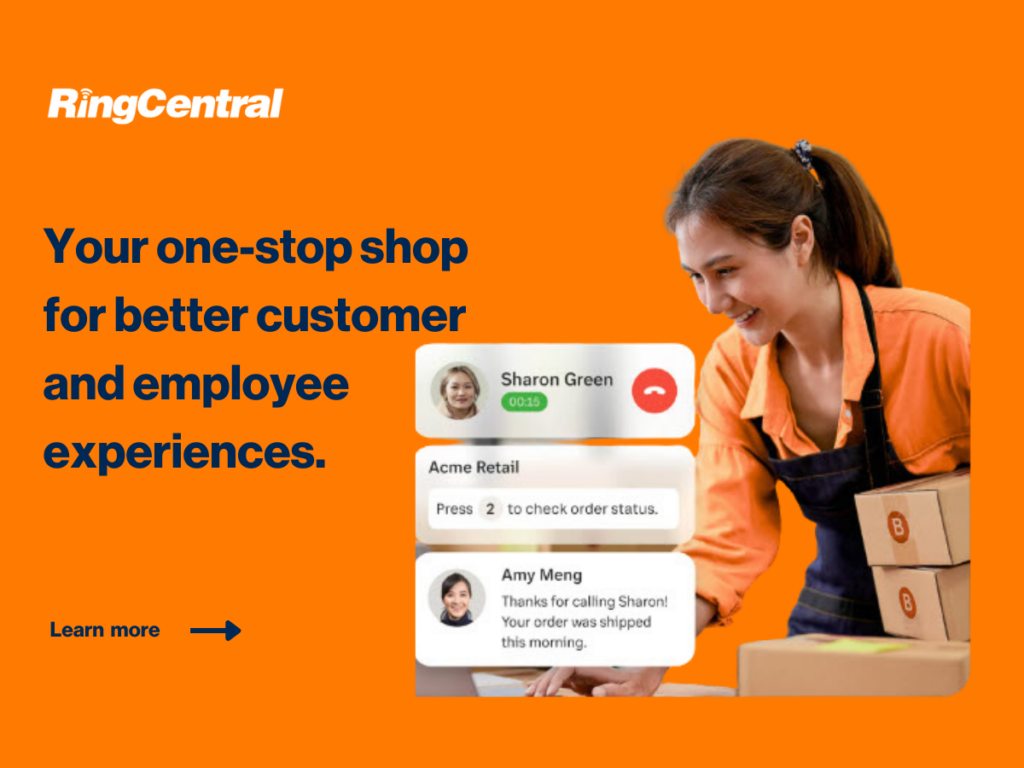What is unified communications for the retail sector?
Unified Communications (UC) in the retail sector integrates real-time communication services like instant messaging, voice, video conferencing, and data sharing with non-real-time services such as email and voicemail. It enhances connectivity, promotes efficiency, and fosters collaboration, allowing retailers to create a seamless customer experience and drive loyalty.
Benefits of unified communications for retail sector
For retailers, adopting UC (unified communications) can yield several advantages:
Enhanced customer service
UC enables seamless communication between employees, departments, and even across different store locations. This translates to faster response times, improved customer inquiries handling, and better overall service.
Efficient inventory management
UC facilitates real-time collaboration among inventory managers, suppliers, and sales teams. This streamlines inventory tracking, restocking, and order fulfillment processes.
Cost savings
By consolidating communication tools (such as voice calls, video conferencing, and instant messaging), retailers can reduce expenses associated with maintaining separate systems.
Improved employee productivity
UC tools allow employees to communicate effortlessly, whether they’re in-store, working remotely, or on the go. This boosts productivity and teamwork.
Unified customer experience
UC ensures consistent communication across all touchpoints, from online inquiries to in-store interactions. Customers receive a cohesive experience, enhancing brand loyalty.
Analytics and insights
UC platforms often provide analytics on call volumes, customer interactions, and employee performance. Retailers can use this data to make informed decisions and optimize operations.
In summary, embracing UC can transform retail operations, leading to better customer service, streamlined processes, and cost-effective communication. Retailers should consider implementing UC solutions tailored to their specific needs to stay competitive in today’s dynamic market .
What key challenges does the retail sector face?
Watch Adam Boreham, Commercial Manager at RingCentral, talking about key challenges for the retail sector:
Economic fluctuations
The retail industry is sensitive to economic cycles. Recessions and market volatility impact consumer spending, affecting sales and profitability.
eCommerce competition
Online retailers and marketplaces pose a significant threat. Traditional brick-and-mortar stores must adapt to digital channels to remain competitive.
High operating costs
Rent, labor, inventory management, and utilities contribute to high operational expenses. Retailers must find ways to optimize costs without compromising quality.
Regulatory compliance
Retailers face complex regulations related to taxes, data privacy, product safety, and environmental standards. Compliance is essential but can be challenging.
Despite these challenges, retailers are cautiously optimistic about future profitability. Many are blending digital innovation with traditional practices to navigate the evolving landscape effectively.
Unified communications solution from RingCentral
In today’s competitive retail landscape, seamless communication is essential. RingCentral, a cloud-based communications platform, offers a comprehensive solution that empowers retailers to stay on-trend and enhance their operations. Here’s why RingCentral is the go-to choice for retailers:
1. Unified platform
RingCentral provides an intuitive app that combines messaging, calling, and meeting features. With everything in one place, retailers can streamline communication across channels, ensuring consistency and efficiency.
2. Real-time interactions
Whether online or in-store, RingCentral enables real-time interactions. Shoppers receive prompt assistance, leading to better customer experiences and increased satisfaction. With RingCentral Push to Talk, your business phone can operate as a two-way radio.
3. Cost reduction
Moving to the cloud with RingCentral results in a significant cost reduction—up to 40–50%. Say goodbye to expensive on-premises solutions and embrace scalability without hefty upfront investments.
4. Empowered employees
RingCentral empowers employees by providing a unified platform. They can seamlessly collaborate, respond to customer inquiries, and adapt to changing demands.
RingCentral bridges the divide between online and in-store communications, offering a holistic solution that enhances brand consistency, reduces costs, and empowers retail teams.
Originally published 05 Aug, 2024




